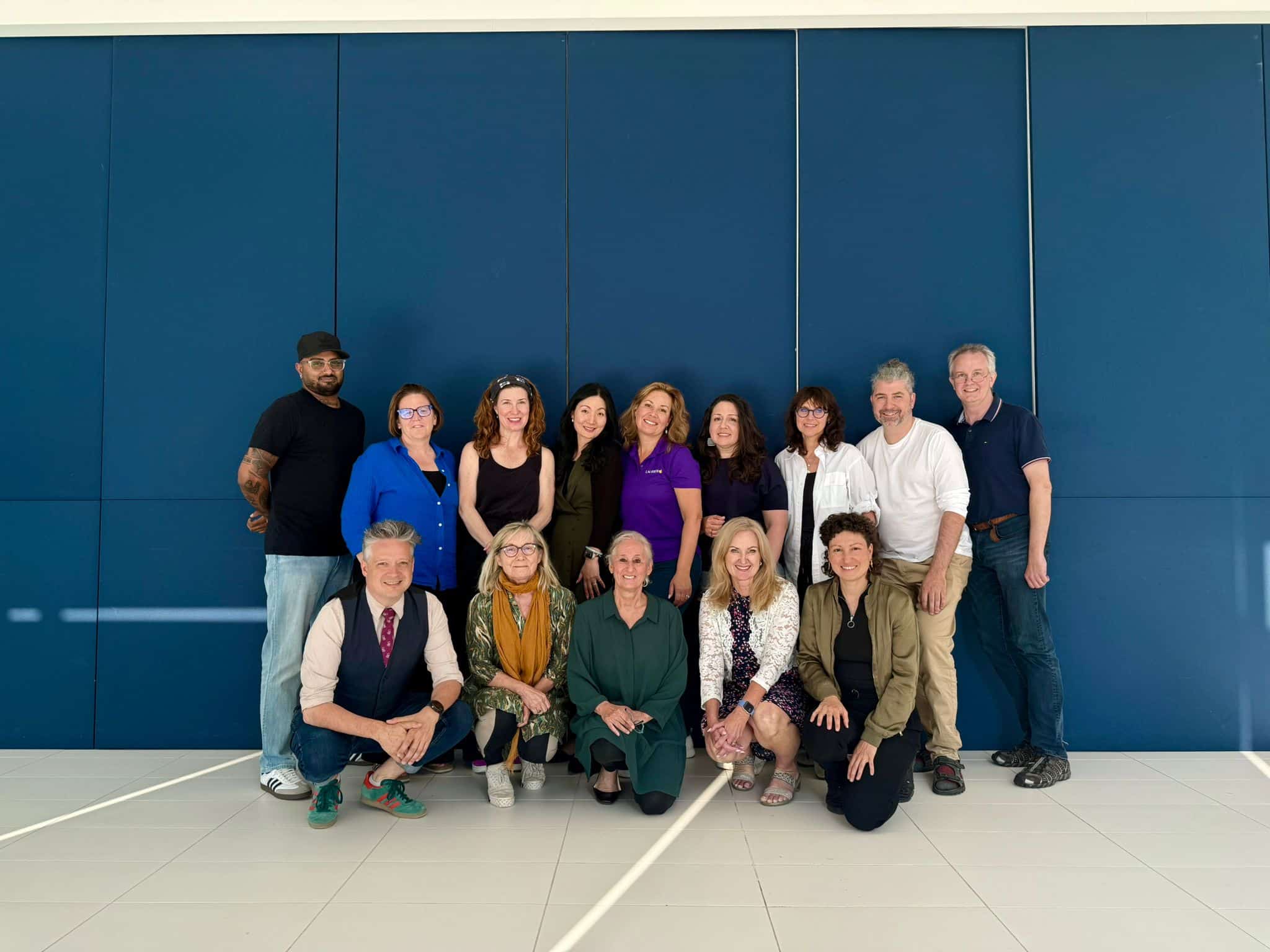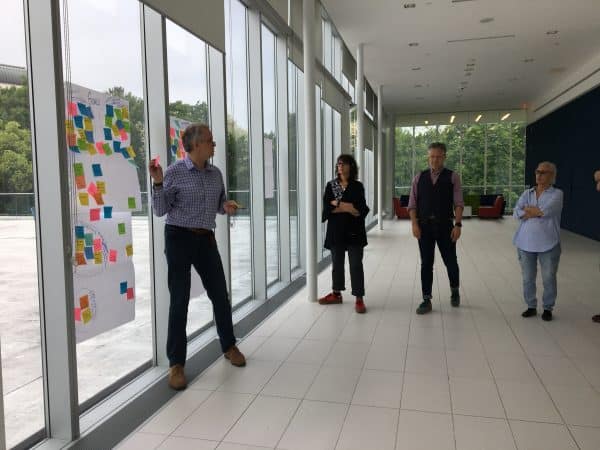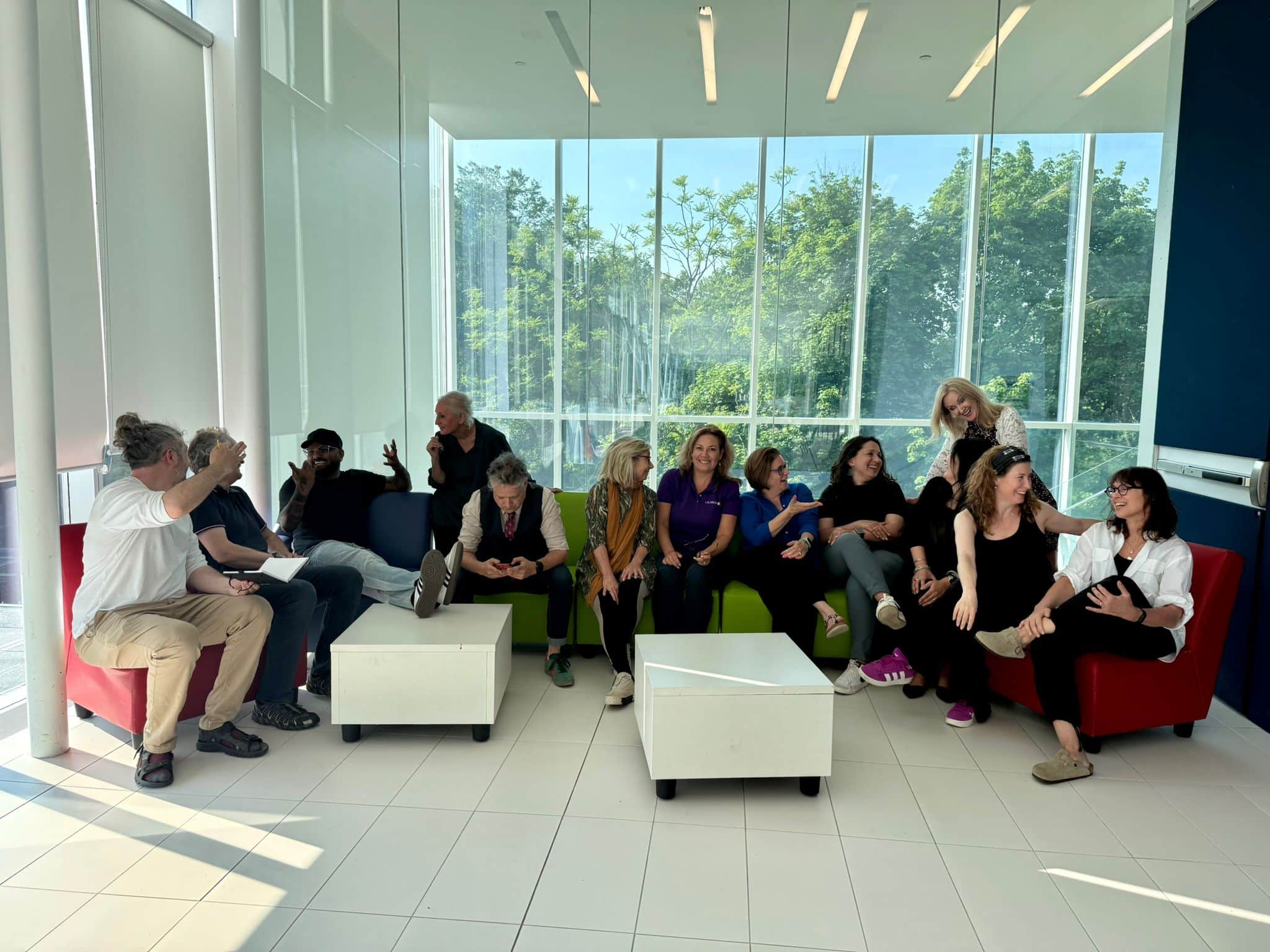Book Sprint with Educational Advocates (York University)
Last month, our facilitator Jana Mendelski headed to Toronto, Canada to run a Book Sprint with thirteen inspiring Educational Advocates!
The authors joining us for this Sprint, calling themselves “Educational Advocates,” are from two learning programmes at York University. After years of experience with these programmes, they wanted to come together and document, synthesize, and share with the world what they’ve learned about learning. More precisely, they came together to radically reimagine what learning could be like.
In their own words from the book’s introduction:
“We are a collective of thirteen Canadian practitioner scholars, educators, and learning advocates who carry with us a rich diversity of perspectives, lived experiences, and professional expertise. Each of us has walked different paths through education, as learners, as teachers, as disruptors. What binds us is a shared refusal to accept the status quo. We have all seen how the current systems fail too many times. We have all asked: What if learning could be something else?
This book was born from that question.”
In this critical piece of work borne from the collective experience of these advocates, they present a strong call to action for all educators, learners, and would-be learners – an invitation to journey with them as they attempt to answer their core question.
Just as the book is a journey into exploring the question of learning, the Book Sprint was a journey into exploring how knowledge could be produced together. As one of the authors put it later on in the book (we won’t spoil too much, so you can appreciate it in full when it comes out!):
“[The Book Sprint methodology] forces collaboration; demands vulnerability and trust; and replaces the slow pace of perfectionism with the creative energy of rapid iteration. For us, it was more than just a production method; it was a living experiment in the very principles advocated in this book.”
The authors came from two different learning programmes, the C4 Programme and the Camerise Initiative.

The thirteen Canadian Educational Advocates from two learning programmes in York University who came together to write this critical piece on making learning better.
The C4 or Cross-Campus Capstone Classroom Programme aims to “provide students with an opportunity to work effectively in interdisciplinary teams on real-world challenges with social impact.” Students from different courses are given the opportunity to come together to address a real-world social issue through leveraging their strength as an interdisciplinary team with diverse perspectives, approaches, and experiences.
The Camerise Programme, on the other hand, aims to “ensure all FSL/FLA stakeholders in Canada have access to inclusive and engaging open educational resources and collaborative tools as well as the support they need to reach their full potential as bilingual or plurilingual Canadians.” The team behind the initiative champions open educational resources to support learning French as a second language among Canadians.
Coming from two different programmes meant that some of the authors had never even met before, prior to the Book Sprint – yet they were expected to collaborate on this book! We had no worries about that though. Our Book Sprint method has a way of making that group dynamic still work through well-facilitated processes and discussions! Jana, the facilitator, ultimately described the atmosphere as very fruitful, friendly, and encouraging.
The value of co-creation
In the introduction of the book, the authors recognize and acknowledge the diversity of experiences that shape societies, most especially the audience they are writing to in Canada. It is precisely this plurality of experience that the authors wanted to not only respect, but highlight in their knowledge production process. This is something that the Book Sprints method is designed to support. By design, a Book Sprint is able to negotiate between, marry, and highlight multiple perspectives in a single piece of collectively produced knowledge. As the authors put it:
“The voices of many authors and ideas, present in different ways in this process, are reflected in this book. The process of open co-creation aims to collectively build understanding through collaboration and iteration.”


Post-its and discussions– some of the main tools we use in Book Sprints to enhance collaborative knowledge production!
Co-creation is not only reflected in the output, but also experienced by the authors themselves in the process. The co-creative process consists of multiple parts: collective ideation, negotiation of perspectives, and iteration based on constant shared feedback. This group had an experience of the third part in what Jana shared was a “tilting point” mid-way through the 5 days of writing and editing.
On Wednesday morning, one of the authors who was assigned to do a read-through of the entire piece gave constructive feedback regarding the way the book had come together so far. The feedback was that the book did not seem cohesive, leading to fears that the output would be disappointing and would not come together as the group envisioned on Day 1. This was a group of excellent writers; all the text they’ve written was good by general standards. However, there was a lot of text – some deemed as “unnecessary” or doubled information.
This feedback seemed to jumpstart the whole team into refining the book and tightening up the text. They were able to hone in and ensure all that they had written was cohesive, consistent, and sharpened to the core of their message. It was remarkable that this feedback and iteration/editing process shortened the word count to nearly half of what it started out as by the end of the 5 days. Jana shared that it was amazing to watch how the team was able to receive and experience the disappointment of the feedback on Day 3 then bounce back to pull the text together by Day 5. This was a wonderful example of how the feedback process can strengthen team dynamic, spirit, and direction towards a shared goal when delivered in contexts like a Book Sprint.
Where our Educational Advocates go next
The authors were able to successfully complete their manuscript of the book by Day 5! This group of Educational Advocates were incredibly inspiring to work with, hearing about their passion and purpose for making learning better. This Book Sprint was a “turning point” in their journey of doing exactly that in their respective programmes, now coming together to build their community and drive their advocacy further beyond.

The Educational Advocates community built through this Book Sprint!
Moving forward, they plan to translate the text from English to French and publish both versions. We’re looking forward to sharing their work with the world!
Some authors commended the Book Sprint methodology and mentioned they might borrow some of it for other meetings, as it’s so much more effective. We’re thrilled to transform the ways teams work together even beyond the Sprint method. Staying true to our roots in open source, we think the Book Sprint experience is something to be shared even beyond the Sprint and we’re thrilled our authors believe so too!
Keep an eye out for more Sprint updates in the future! Never miss an update with us by following us at the links below.
—
Got a great idea? Tell the world with us through a Book Sprint.
Send us a message on IG, LinkedIn, or at contact@booksprints.net
